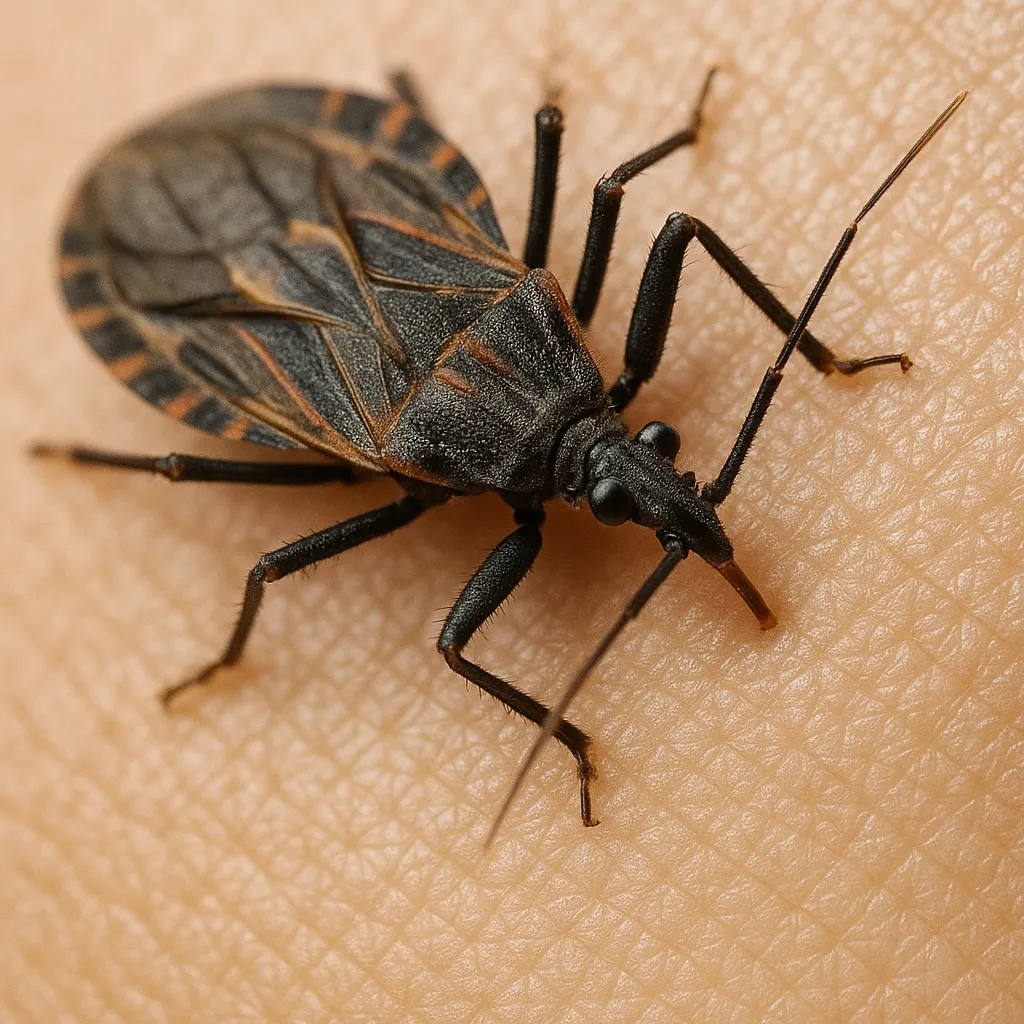CDC Warns Kissing Bugs Spread to 32 States, Raising Chagas Disease Risk

Lead The Centers for Disease Control and Prevention reports that blood-sucking “kissing bugs” have been found in 32 U.S. states, with human Chagas disease cases emerging in at least eight states, the agency said Sunday.
Nut Graf Public health officials stress that the expansion of triatomine insects, which carry the parasite Trypanosoma cruzi, heightens the risk of Chagas disease-a potentially life-threatening condition often undetected until chronic cardiac or gastrointestinal complications arise.
Kissing Bugs on the Move State and federal surveillance data indicate that the insects have now been documented across a broad swath of the country, including California, Texas, Arizona, Louisiana, Missouri, Mississippi, Arkansas and Tennessee. Entomologists attribute the northward range shift to changing wildlife habitats and warming temperatures.
How Chagas Disease Spreads Triatomine bugs feed on blood and defecate near bite sites. If bug feces enter the body-through scratching or contact with mucous membranes-the T. cruzi parasite can invade tissue and circulate in the bloodstream. Early symptoms, such as fever, fatigue, headache or facial swelling (Romaña’s sign), are often mild or overlooked.
Chronic Phase Dangers Left untreated, Chagas disease can enter a chronic stage years after infection. Up to 30 percent of infected individuals risk developing severe heart rhythm disorders, cardiomyopathy or digestive tract damage.
Key Precautions
- Seal cracks and gaps in walls, windows and doors; install screens.
- Remove brush, woodpiles and rodent nests near dwellings.
- Use bed nets in affected regions and inspect sleeping areas.
- Consult a healthcare provider if bitten or upon discovery of the insect indoors.
Public Health Response The CDC urges clinicians to consider Chagas disease in patients with compatible symptoms or insect exposures in endemic areas. Enhanced screening of blood donors and pregnant women aims to curb congenital and transfusion-related transmission.
Outlook While antiparasitic treatments are most effective during the acute phase, raising awareness among physicians and the public remains critical to detect and treat infections before irreversible damage occurs.
Categories
Autos and vehicles Beauty and fashion Business and finance Climate Entertainment Food and drink Games Health Hobbies and leisure Jobs and education Law and government Other Politics Science Shopping Sports Technology Travel and transportationRecent Posts
Tags
Archives
08/19/2025 (3) 08/20/2025 (40) 08/21/2025 (27) 08/22/2025 (22) 08/23/2025 (4) 08/24/2025 (21) 08/25/2025 (30) 08/26/2025 (24) 08/27/2025 (29) 08/28/2025 (16) 08/29/2025 (9) 08/30/2025 (13) 08/31/2025 (17) 09/01/2025 (167) 09/02/2025 (124) 09/03/2025 (149) 09/04/2025 (112) 09/05/2025 (72) 09/06/2025 (169) 09/07/2025 (162) 09/08/2025 (150) 09/09/2025 (176) 09/10/2025 (194) 09/11/2025 (194) 09/12/2025 (186) 09/13/2025 (207) 09/14/2025 (159) 09/15/2025 (175) 09/16/2025 (198) 09/17/2025 (196) 09/18/2025 (196) 09/19/2025 (207) 09/20/2025 (129) 09/21/2025 (4)